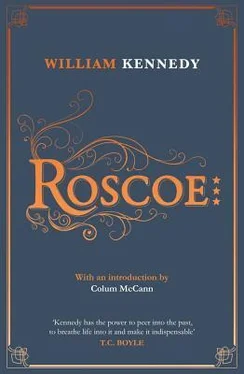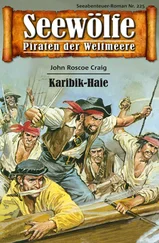“You decide what you wanna do with the brewery?” Bindy asked.
“I’ll hold on to it.”
“We can raise the offer.”
“Not for sale, Bin. If it runs, I run it.”
“You ready to do business?” Mush asked.
“You’re handling the beer for Bindy,” Roscoe said.
“That’s my job.”
“You’ll pick it up, find the customers, deliver it.”
“I’ll do that. You ready to do business?”
“I am.”
“I’d like to see the place.”
“I don’t go to the brewery,” Roscoe said.
“Why not?”
“I only went there to see my father. He never wanted me selling beer. Then he gave me the brewery.”
“How do you run it?”
“With a bookkeeper, and Louie Glatz the brewmaster. My brother, O.B., will be around when you need somebody, and we’ll rehire whatever crew we need to keep your trucks rolling. How much beer will you need?”
“How much can you make?”
“That much, eh?”
“People want beer.”
“It won’t be beer. It’ll be oh-point-five.”
“That’s right.”
“Any stronger, they’ll padlock the place and me with it.”
“How does it taste?”
“The best in town. But when we run it over the heat to get the alcohol out, I don’t know.”
“Nobody’ll complain. We’ll fix it so it does what it’s supposed to do.”
“What do you know about beer, Mush?”
“Nothin’. I just move it.”
“How long you been moving it?”
“Two weeks.”
“An old hand.”
“I moved other stuff.”
Mush was known as a swagman, a dealer in stolen jewelry — his gold watch and chain were probably hot — and as a domestic smuggler of heroin wrapped in cigars and sealed inside Christmas candles. By repute he now had close ties to a Jersey brewery that had been preparing to go clandestine ever since Prohibition became a sure thing, which was why Bindy brought him to Albany, a major market for which the McCall brothers were anxious to compete. Six months earlier Patsy had bought an empty soap factory that covered half a city block in the North End to garage his trucks for hauling the beer, and to sell car and truck tires as a front. Bindy had set up stills in half a dozen city neighborhoods for making home brew, and was building a major still on Westerlo Island in the river. These would only begin to cover the demand.
“You plan to bring in the real goods, I hear,” Roscoe said to Mush.
“Right. As soon as we control some roads and trains. Where’s this brewmaster guy? Can he show me the layout?”
“I’ll have him do that.”
Roscoe found Louie Glatz, a dull, good-looking, yellow-haired German of thirty who was the third-generational brewer in the Glatz family. Roscoe brought him over to meet Mush, and Louie took the new partners to the brewery. Would this partnership last? Probably not for long. But in the short run, Stanwix’s income could skyrocket. We might even go round the clock making the stuff, and nothing illegal about it except the distributors. But what those fellows do is not my province, says the Ros. Let them spike the beer if they want the risk. Roscoe does not want a Felix reprise: cast out in disgrace. Roscoe is an honest man. Every man has his fault and his is honesty. But isn’t it true there’s no such thing as an honest man? Anyone who says that is himself a knave. Yes, of course. Honesty is the best policy for people striving to be poor, and an honest man’s word is as good as his bail bondsman. But as a practical matter, if a man insists on dealing only with honest men he’ll have to stop dealing. Roscoe knows how honest men think and it is terrifying. Wouldn’t showing yourself as partially honest be the smarter way to wealth, even though shameless dishonesty would quicken profits? Yes. And a man ought not be simply good, but good for something, and so Roscoe will try to succeed by making it a practice to be honest whenever it seems feasible.
Roscoe made rounds of the celebrants and drank a little Stanwix with many: Neil Tilton and Rob Cooper, a pair of young Fort Orange Club lawyers who were close to Elisha, and Will Smith and Mike Rea gan, who were jubilant over their re-election as alderman and supervisor of the stalwart Ninth Ward, and Cody Gilpin, the midget emcee for Malleys’ entertainers, when the saloon was running. Cody was on the small stage at the end of the bar playing very well a string of slow, sad tunes on his baby piano, “You Made Me Love You, (I didn’t want to do it),” “Come to Me, My Melancholy Baby,” and so on.
“Can’t you play something lively, Cody?” Roscoe said. “This is a celebration, not a wake.”
Cody banged a double-handed discord and got up from his stool. “Nuts to music,” he said, and he climbed up the barstool and sat cross-legged on top of the bar. He was in shirtsleeves, with his trademark derby.
“I didn’t mean to hurt your feelings,” Roscoe said.
Bart Merrigan moved in. “What happened to the music?”
“Gimme a beer, Sammy,” Cody said, and when Sam Malley, the co-owner of the saloon, poured him a very short beer, Cody told Roscoe and Bart about his wife, Absinthe, also a midget. “She ran off this morning with a little dink of a dancer to go back into vaudeville.” Absinthe and Cody had been part of a song-and-dance troupe playing Albany’s Empire Theater when they decided to settle here. Their jobs now gone with the new dry law, Absinthe wanted no more of Albany. But Cody liked the town.
“No saloons to work in,” Cody said. “You think Patsy’ll get me a job?”
“What kind of job?” Roscoe asked.
“Anything small.” Cody quaffed his baby beer, asked for another. “That little bitch,” he said, “she was my queen. I loved her like a slave.”
Little jilted guy, where would he find another Absinthe’s size in Albany? Roscoe, fearful of laughing or weeping, left Bart to cope with Cody. His eye found Hattie and he went to her.
“I’m here for my appointment,” he said.
“We don’t have an appointment.”
“I’m making one now.”
“For when?”
“Two minutes from now.”
“Where?”
“In the back room.”
“What do we do at this appointment?”
“You could show me the color of your money.”
“You sent Louie away.”
“Wasn’t that clever?”
“The back room’s not a good place for an appointment.”
“Is there anybody back there?”
“No.”
“Then it’s a fine place. Come and see me.”
And Roscoe went to the back room, which was stacked with beer kegs and several crates of whiskey. The Malleys also kept mops, brooms, the ice chest, an old woodstove, and trash barrels for the empties back here. Roscoe lit a wall sconce and drew the shade on the single window, then stood behind the kegs waiting, thrilled to his bones by what might be about to happen. But it seemed too easy. She would not come. Why should she yield to such a direct request? He had not uttered one courting line, not one word of affection, nothing but eyes and innuendo. She won’t come. But she didn’t say she wouldn’t. Roscoe had imagined this encounter before he went to war, then came home to find her a widow, and everything seemed possible. She’s a woman of substance. She knows who she is. She won’t come if she doesn’t feel anything for you, Ros. If she comes, that alone is a triumph, unless she comes in to say, Never do this to me again, who do you think I am? But Roscoe had seen reciprocation in her eye, hadn’t he? The back room of a saloon full of people, there must be a better place. Yes, but not now.
Hattie entered the room with a key in hand. She locked the door and came directly to Roscoe, and, without a word, he embraced and kissed her. They lingered over it, brand-new sweetness, and his possession of her face, the amplitude of her body, his hand on the small of her back moving downward and not repulsed, it was all so fine. She fits you, Ros, and he stopped kissing her so she could look at his face, see what she was doing to him.
Читать дальше












